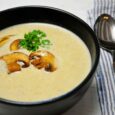
Eggs have been maligned for many years. One minute they are good and the next they’re going to give you a heart attack. So what do we know about eggs? Eggs are a highly nutritious whole food, an affordable source of complete protein, contain 11 vitamins and minerals, omega-3 and antioxidants. However, many Kiwis are still limiting their egg intake based on old advice. Recent research (2017) by Colmar & Brunton found that less than half of New Zealanders know that a healthy person can eat eggs every day, with most people saying less often. A new statement has been agreed by the NZ Nutrition Foundation & Ministry of Health that helps clarify the place of eggs in the Kiwi diet. The statement says: “Eggs are a healthy, natural whole food that the New Zealand Ministry of Health Eating and Activity Guidelines state can be enjoyed by most people every day of the week.” Note, exceptions to this are those at increased risk of heart disease (NZ Heart Foundation recommends no more than 6-7 eggs per week), and those classed as hyper-responders to dietary cholesterol. Otherwise, the latest scientific evidence indicates that there is no association between increased intake of dietary cholesterol and increased risk of heart disease or stroke. However, eggs are not safe for everyone. They are one of the top 8 foods associated with allergic reactions, so should still be avoided by these people. Additionally, some people know that eggs aggravate digestive symptoms. This is more commonly linked to eating the white (rather than the yolk), but might not be an issue if duck or quail eggs are consumed. Such reactions might be due to histamine intolerance, and an overall dietary appraisal is recommended to determine the underlying factors related to this.
What Nutrients are in Eggs?
Protein
Eggs are a ‘complete protein’, meaning they contain all the essential amino acids needed for healthy body functions. For their weight, eggs provide the highest quality protein of all foods. This protein is extremely digestible and may help to keep you fuller for longer, which can help weight management. The protein in eggs is particularly useful for:
- Assisting in growth and development, particularly in growing children
- Maintaining muscle mass, especially in older adults and athletes
- Supporting strength, particularly for older adults.
Fats
One medium (no 6) egg contains about 4 grams of fat – with more unsaturated than saturated fat. Fat supplies energy and contains fat-soluble vitamins. Eggs are also a source of omega 3 fatty acids – how much depends on the food of the chickens. Some farmers enhance the feed of chickens to ensure higher omega 3 content in the eggs.
Vitamins and Minerals
Eggs contain a number of vitamins, minerals and antioxidants:
- Selenium: A mineral that is a component of antioxidants, which protect our body and immune system
- Folate (folic acid): Needed for growth and maintenance of healthy cells, including blood cells
- Vitamin B5 (Pantothenic acid): Aids in the release of energy from food for our body to use
- Vitamin B12: Essential for brain and nervous system functions and blood cell formation
- Vitamin A (Retinol): Important for immunity, growth and eye health
- Iodine: Required for proper function of the thyroid gland (involved in metabolism)
- Vitamin E: A fat-soluble vitamin that acts as an antioxidant to protect against disease and support the function of vitamin C in the body
- Phosphorous: Needed to build strong bones and teeth
- Iron: Essential for normal function of red blood cells (used to make haemoglobin which carries oxygen)
- Vitamin B1 (Thiamine): Aids in turning carbohydrates into energy
- Zinc: An important mineral that is needed for proper immune function. Also helps in growth, wound healing, blood formation and maintenance of tissues
- Vitamin D: Required for a number of different functions, including immune responses. Also needed for proper utilisation of calcium, so very important in bone health
- Calcium: Needed for normal muscle function as well as for building and maintain bones and teeth
- Other nutrients such as Biotin helps cell metabolism and the utilisation of fats, proteins and carbohydrates; Lecithin, with acetylcholine (aids brain function), Choline – required for a number of metabolic processes, including those of liver, heart and brain, and lutein, which is important for eye health.
Antioxidants
As well as the minerals and vitamins used in manufacture of antioxidants in the body, eggs also contain the phytochemicals lutein and zeaxanthin, which are thought to be protective in the prevention of eye disease.
Eggs & Cholesterol
Studies conducted in healthy people show no effect of daily egg intake on blood cholesterol. Recent scientific evidence showed no association between increased intake of dietary cholesterol and increased risk of heart disease or stroke.
Nutrient Content of Raw New Zealand Hen Eggs
| Nutrient | Two medium eggs (120g) | % Recommended Daily Intake* Males Females |
| Energy (kJ) | 548 | 4 5% |
| Protein (g) | 13.4 | 20 29% |
| Fat (g) | 8.4 | |
| Saturated fat (g) | 2.2 | |
| Monounsaturated fat (g) | 3.8 | |
| Polyunsaturated fat (g) | 0.8 | |
| Cholesterol (mg) | 406 | |
| Sodium (mg) | 144 | |
| Iron (mg) | 1.8 | 22 10% |
| Selenium (ug) | 24 | 34 40% |
| Zinc (mg) | 1.0 | 7 12.5% |
| Vitamin B12 (ug) | 1.6 | 66 66% |
| Folate (ug) | 128 | 32 32% |
| Vitamin A (ug) (Retinol) | 228 | 25 32% |











